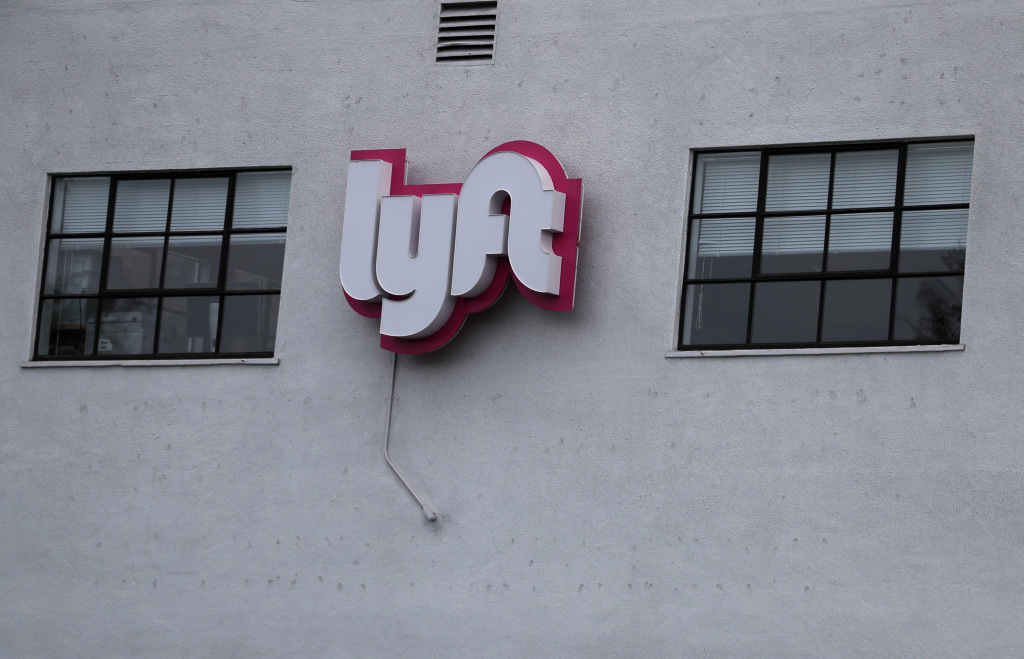Bay Area ride-hailing giant Lyft is accused in a series of new lawsuits of failing to protect female passengers from rape by drivers. One plaintiff claims she was 15 when her driver raped her and then forced her to take an anti-pregnancy pill.
The December legal actions are part of a “mass tort” lawsuit initiated in August 2019 by 20 women alleging sexual assault by Lyft drivers. Several dozen women joined the case soon after, and lawyers for the plaintiffs plan to add hundreds more alleged victims. A trial is scheduled for January 2022.
“Since 2015, sexual predators driving for Lyft have continued to assault and rape Lyft’s female passengers,” the five suits filed Dec. 21 in San Francisco County Superior Court allege. “Even today, the hiring of Lyft drivers occurs without any real screening.”
“The key to Lyft’s business model is getting as many new Lyft drivers on the road as possible.”
The five suits — identical but for the plaintiffs and circumstances of the alleged rapes — claim the company knows it has a “sexual predator crisis” but has declined to implement “obvious and straightforward safety procedures.”
Lyft, in response to questions about the suits’ claims, said it continually invests in new features and policies to protect passengers and drivers.
“What these women describe is something no one should ever have to endure,” the San Francisco company said in an emailed statement Thursday. “Everyone deserves the ability to move about the world safely, yet women still face disproportionate risks. We recognize these risks, which is why we are relentless in our work to build safety into every aspect of our work.”
The consolidated legal action scheduled for trial in 2022 involves alleged victims of sexual assaults ranging from groping to rape. In the suits filed Dec. 21, plaintiff “Jane Doe 10” claims she was 15 when she took a Lyft ride home from a friend’s house in Dallas in October 2019, and the driver raped her near her home, then took her to a drugstore and made her take the morning-after pill before driving her home. The driver was prosecuted, according to the suit.
Plaintiff “Jane Doe 9” claimed she was out with friends in Chicago in 2018, and was raped at home by her Lyft driver. The suit said the driver was identified through DNA and fled after an arrest warrant was issued.
Plaintiff “Jane Doe 8” of Oregon claimed a Lyft driver taking her home from a bar in December 2019 forced her into oral sex before raping her without protection.
The fourth plaintiff alleged that she was raped at home by her Lyft driver in November 2019 after she attended a charity event at a Chicago bar.
Another plaintiff claimed that she took a Lyft ride home from a bar in San Diego in January 2017 and was raped at home by the driver, who fled to Mexico after being contacted by a detective investigating the attack.
The suits allege that Lyft drivers get their jobs by filling out an online form and are not interviewed, fingerprinted or subjected to adequate background checks.
Lyft told this news organization it conducts initial and annual criminal-background checks that include “a social security number trace, a nationwide criminal search, a county court records search, a federal criminal court records search, as well as a U.S. Department of Justice 50-state sex offender registry search.” The company said it also conducts “continuous criminal monitoring and continuous driving record checks” that allow it to identify and remove “unsafe drivers” from its service.
The suits also allege that Lyft “does not cooperate with police when a driver commits an illegal sexual attack on its passengers,” requiring that “extensive standards be met” before it will consider police requests for information, and only releasing information in response to a subpoena.
Lyft said it has a dedicated “law enforcement response team” that operates 24/7. “Our policy is to respond to 100% of valid law enforcement requests,” the company said. Lyft’s privacy policy requires “a subpoena or other valid legal process” for information to be released to police, to protect passengers’ identities and personal information and ensure the passenger is the “core decision-maker when it comes to deciding whether and how to report an incident,” the company said.
Lyft could, the suits allege, ensure that video is taken and saved of all rides, and the firm could track drivers if they leave their cars for any reason other than to provide temporary help to a passenger, and it could set up a system in which passengers must confirm their intention to significantly change routes or destinations.
Lyft said it has developed in-app features allowing riders to share their location with family and friends, and to quickly and easily obtain emergency help from a security firm that can alert police upon a passenger’s request.
The plaintiffs are seeking unspecified damages, including punitive damages.
The firm’s rival, Uber, has also faced a torrent of allegations that it doesn’t protect female passengers from sexual assault. After admitting last year that thousands of sexual assaults were reported during rides, Uber was fined $59 million this December for allegedly defying demands by California regulators for details about the reported attacks and its responses to them. Uber in response noted that its publicly issued safety report that acknowledged the sexual assaults was an industry first, and the San Francisco company described regulators’ efforts to obtain details as a violation of victims’ privacy.










